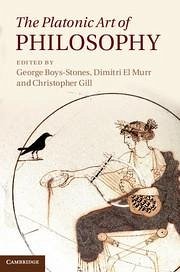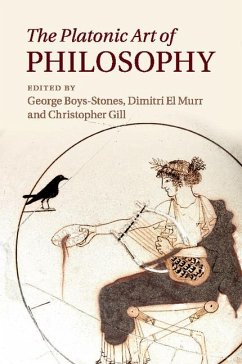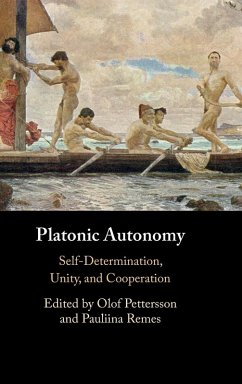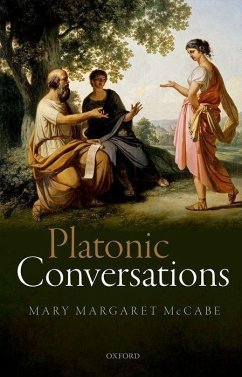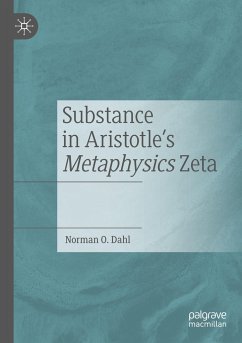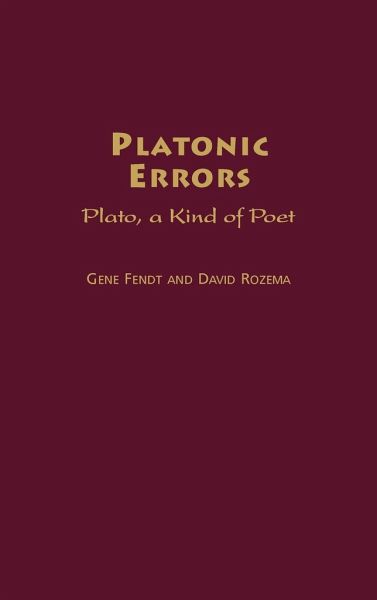
Platonic Errors
Plato, a Kind of Poet
Versandkostenfrei!
Versandfertig in 1-2 Wochen
87,99 €
inkl. MwSt.

PAYBACK Punkte
44 °P sammeln!
While the dramatic approach to Plato's dialogues has become popular over the last decade, little attention has been paid to the poetic quality of Plato's writing, and the received view of Platonic philosophy still depends on an unpoetic and largely literalist reading of the dialogues. The authors of this volume focus on the text of selected dialogues to identify the thread that unifies each of them from a literary point of view. The conclusions they reach in practicing this kind of reading are diametrically opposed to the largest stream of Platonic scholarship and show the fallacy of important...
While the dramatic approach to Plato's dialogues has become popular over the last decade, little attention has been paid to the poetic quality of Plato's writing, and the received view of Platonic philosophy still depends on an unpoetic and largely literalist reading of the dialogues. The authors of this volume focus on the text of selected dialogues to identify the thread that unifies each of them from a literary point of view. The conclusions they reach in practicing this kind of reading are diametrically opposed to the largest stream of Platonic scholarship and show the fallacy of important metaphysical, epistemological, political, and ethical positions frequently attributed to Plato.







